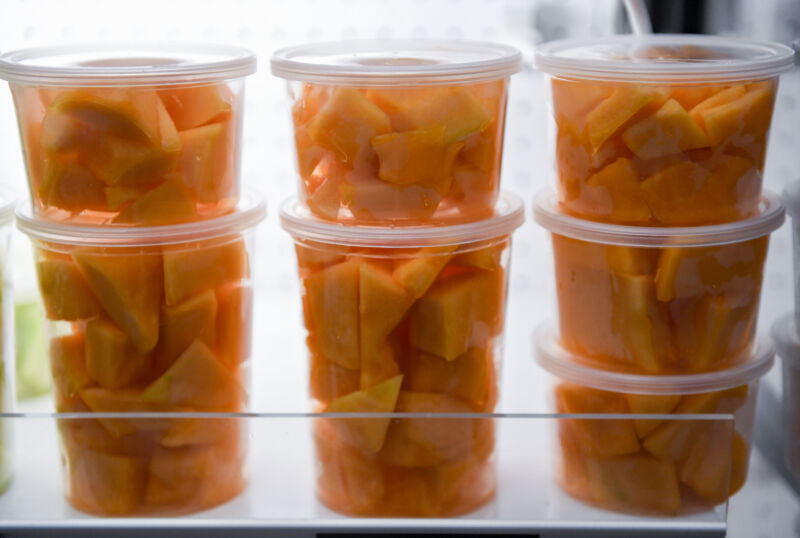
The Centers for Disease Control and Prevention is warning everyone in the country to back away from pre-cut cantaloupe unless you’re certain the fruit in question is not tied to a large, nationwide Salmonella outbreak that is unusually severe.
So far, 117 cases of infection across 34 states have been identified in the outbreak. The cases are in people ranging from infants to the elderly, including a 100-year-old. Of the cases, 61 (52 percent) have been hospitalized, and two deaths have been reported in Minnesota.
The CDC attributes the unusually high hospitalization rate to the fact that the pre-cut fruit was served at long-term care facilities and childcare centers. The elderly and young children are at higher risk of severe Salmonella illness.
Two brands of whole cantaloupes have been recalled in connection to the outbreak: Malichita and Rudy brands. But many recalled products were sold pre-cut, making it harder for consumers to recognize the brands. The CDC advises that if you don’t know whether Malichita or Rudy brand cantaloupes were used in pre-cut products, don’t eat or serve them.
Meanwhile, multiple pre-cut cantaloupe and fruit cup products have been recalled so far, including those sold at Kwik Trip, Bix Produce, Aldi, Kroger, Sprouts Farmers Market, and Trader Joe’s. Brands of recalled pre-cut fruit include Freshness Guaranteed, RaceTrac, and Vinyard.
CDC epidemiologists have identified two strains of Salmonella in the outbreak, which also spans into Canada. So far, Canadian officials have identified at least 63 cases across British Columbia, Ontario, Quebec, Prince Edward Island, and Newfoundland and Labrador. Genetic testing of the strains identified suggest that they are not resistant to antibiotics.
Most people who ingest Salmonella go through diarrhea, fever, and stomach cramps, which can start anywhere from six hours to six days after the exposure. Most people recover in four to seven days without treatment, but children under the age of 5, adults 65 and older, and those with weakened immune systems are at higher risk of severe illness. That can look appreciate diarrhea with high fevers above 102° F, diarrhea that doesn’t better after several days and becomes bloody, excessive vomiting, and dehydration.

